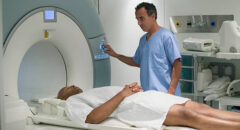
Persons who are living with multiple sclerosis typically go through cycles of remission and relapsing. However, that doesn’t mean you have to suffer from relapses all the time. According to the health experts, there are steps you can take to make a relapse or flare-up less likely.
How Do You Know It’s A Relapse?
Technically, it can only be called a relapse if it happens 30 days after your first flare-up and lasts for at least 24 hours.
A relapse can happen at any time but there are usually a few warning signs that one is on its way.
The symptoms can include problems with your balance, blurred vision or blindness in one eye, dizziness, numbness, pain, feeling pins and needles in the limbs, fatigue, as well as weakness.
It’s important to note that you don’t have to experience all the symptoms for it to count as a relapse. In some cases, persons can have only one issue that has gotten worse. For example, inflammation of the optic nerve during a relapse will only impair your vision.
Five Ways To Prevent A Relapse
1. Don’t Skip Your Medications
It should go without saying but if you’re not taking your medications as prescribed, your odds of having a relapse will be higher.
Since the side effects are the most likely reason for you to avoid your medications, talk to your doctor about them.
They can either be managed more effectively or you may need to explore the other medications that are available.
2. Eat Well
The link between what you eat and overall health is well-established. There’s no specific MS diet but studies suggest that a general anti-inflammatory diet could be highly beneficial. In this kind of diet, you would cut down on foods that usually promote inflammation in the body such as refined sugars and heavily processed foods. Instead, focus on adding whole grains, fruits, vegetables, and healthy fats to your meals.
3. Keep Physically Active
It might not be easy to keep active when you’re living with multiple sclerosis but it works wonders for preventing a flare-up. It’s suspected that the benefit of exercise comes from its impact on inflammation as well as the fact that persons who are active usually sleep better,
4. Pay Attention To Your Mental Health
If you’re under a lot of stress or you’re already dealing with a mood disorder, you might be more prone to having a relapse.
The only way around that is to effectively manage your stress with effective relaxation techniques as well as take measures to control your anxiety or depression. In the event that you’re unable to effectively manage your mental health on your own, consider seeing a therapist so they can determine what else you need.
5. Get Your Vitamin D
While there is room for more research, recent studies suggest that low levels of Vitamin D can lead to a relapse. That’s because this vitamin can help to calm the immune system.
To add Vitamin D to your diet, look out for eggs, liver, oily fish, and fortified foods. If that’s not possible, a supplement would be your best bet. It’s good to ask your doctor how much you’ll need, though.
When To Call Your Doctor
Minor symptoms such as fatigue and numbness can usually be handled with rest or over-the-counter medications. If you’re having trouble maintaining your balance, are extremely dizzy, or the pain is difficult to manage; it’s time to call your doctor. It’s possible that your inflammation will need to be treated with a course of corticosteroids. Recent treatment options also include adrenocorticotropic hormone (ACTH) and plasma exchange.
Relapses with multiple sclerosis can range from being mild to severe. While the symptoms can be managed through appropriate treatment measures, it’s better to prevent the flare-ups where you can. By implementing one or more of the tips here, you’re more likely to keep an MS relapse at bay.









